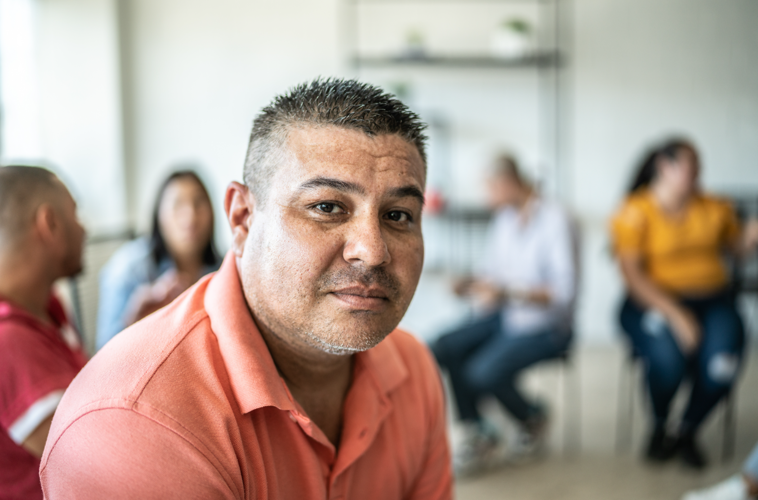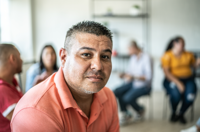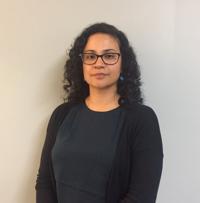
Photo by Getty Images
Mental Health is often a front-and-center issue for many Latinos, but why is that topic still taboo in the community?
In the latest data from KFF the suicide rate for Latino people in the United States has increased significantly over the past decade. Additionally the Center for Disease Control and Prevention’s provisional data for 2022 shows a record high of nearly 50,000 suicide deaths for all racial and ethnic groups.
The breakdown averaged one death every 11 minutes, a statistic that drove suicides up 36% percent since the start of the millennium. Data from the American Psychiatric Association shows that each year 243,000 Latinos in the U.S. attempt to take their own lives and that 17% of high school-age Latinos experience suicidal thoughts. The study also reports that suicide is the second leading cause of death among people aged 10 to 34.
There's too many barriers when it comes to Latinos not having access to mental health services. A study of Latino immigrants found the primary barriers to mental health services were cost (59%), lack of health insurance (35%) and language (31%).
AltaMed Health Services is one of the nation’s largest federally qualified community health centers, with more than 60 health centers in Los Angeles and Orange counties. AltaMed serves more than 500,000 people, regardless of the ability to pay. About 80% of AltaMed’s patient demographic is Latino and on Medi-Cal.
CALÓ News spoke to therapist Frances Chinchilla Orellana, clinical supervisor of Behavioral Health Services at AltaMed to discuss mental health awareness and suicide in the Latino community.

Frances Chinchilla Orellana, clinical supervisor of Behavioral Health Services at AltaMed. Photo courtesy of AltaMed
“Mental health is an important topic to address and it’s a topic that it’s considered taboo and not just in the Latino community but I think in other communities as well. In the Latino community we have a lot of stigma around mental health. So there's a belief of being able to manage our problems, being strong but when it comes to seeking outside support it’s considered not appropriate and mental health services are not encouraged,” Orellana Said.
She also explained that when a person is experiencing suicidal thoughts, there’s a lot of shame around that because it tends to be an idea that somehow related to weakness or a lack of resilience.
“There’s shame when it comes to expressing these thoughts [to] like a family member or someone within our support system. There’s also fear of those feelings and thoughts being dismissed or minimized,” she said.
According to the Department of Health and Human Services, Latinos have the highest uninsured rates of any ethnic group in the country, with 18.3% of the population uninsured compared to 5.4% of white people. While undocumented Latinos don’t qualify for Marketplace health coverage, they can buy private health insurance outside of Covered California.
As suicide rates were on the rise in the last decade Orellana belives that is caused by socio-econmic factors and other various reasons. “In the last couple of years the pandemic had an impact in our community and were deeply affected by COVID-19. We experienced more deaths in the community. Latinos tend to live in multi-family homes so the spread was most likely to occur in households and the lack of access to appropriate medical care. Also Immigration status affects people's ability to receive certain benefits. During the pandemic undocumented people couldn’t receive financial benefits. Overall the pandemic affected many of us financially because if you weren’t able to work you were at risk of losing housing or covering basic needs,” Orellana said.
Financial status can also affect mental health status. Latinos living below the poverty level, as compared to Latinos over twice the poverty level, are twice as likely to report serious psychological distress, According to the Department of Health and Human Services.

South Gate Middle School – Parent workshop – Frances and Mayra Chavez talking to parents about the importance of talking to their children about mental health, learning how to recognize the warning signs and how to maintain open, healthy communication with their children. Photo courtesy of AltaMed Health Services
Orellana also touched on the amount of stress people were under during the pandemic. “What the community experienced was drastic and significant. It also drastically affected the communities mental health and [we] actually started to see an influx of people who had never sought mental health services. They started to come in to address not only the fear around infection but also the stress about not being able to work and cover basic needs as well as addressing grief,” She said.
In California 39.3% of the total state population is Latino. There were a total of 41.8% Latino COVID-19 deaths nationwide, according to CDC. The COVID-19 pandemic had a devastating effect in the community.A national study found that though the suicide rate among all U.S. residents decreased among non-Hispanic white people, rates in ethnic minority groups increased—notably, suicide rates in Hispanic males increased by a staggering 29% between 2019 and 2020.
The fear of stigma prevents many Latinos from seeking help for mental health services, and those who do seek help may face difficulty in accessing quality treatment. “A lot of people suffer in silence and when we suffer in silence it just starts to build up and after a while we begin to see that we’re unable to function the way that we used to. We become unable to bear our level of stress and we start to see symptoms of depression and anxiety,” Orellana said.
She also believes that it is important to bring mental health to the forefront and create campaigns around mental awareness in our Latino community. Additionally Orellana explained that at AltaMed they have embedded mental health into their facilities and providers. “Our doctors are promoting mental health care and they are administering screeners to our patients and checking in with them about their mental health and letting them know that we have someone [for] them to talk to and the services are for everyone,” she said. At AltaMed they are making sure they are creating those links with their patients so that they are most likely to want to say yes to services.
Unfortunately, when it comes down to mental health care, not one size fits all. The proper care of a community can be improved by taking into account its beliefs, values, and cultural differences. Mental health is less socially acceptable in Latino communities than neurological or physical conditions. As a result, Latinos oftentimes describe their mental health symptoms in physical terms rather than emotional ones.
Orellana believes that the best way we can better help our community with mental health is to come from a place of curiosity and wanting to know what’s going on with other people and loved ones. She said that it’s always best to not jump into conclusions, not showing any type of judgment or minimizing what they are going through. Instead individuals should offer solutions and overall create a safe space.
If you are struggling, worried about a loved one, or in need of any type of support, call or text 988. The helpline is available 24/7 and is in more than 240 languages.
Individuals who speak Spanish can connect directly to Spanish-speaking crisis counselors by calling 988 and pressing option two.















(0) comments
Welcome to the discussion.
Log In
Keep it Clean. Please avoid obscene, vulgar, lewd, racist or sexually-oriented language.
PLEASE TURN OFF YOUR CAPS LOCK.
Don't Threaten. Threats of harming another person will not be tolerated.
Be Truthful. Don't knowingly lie about anyone or anything.
Be Nice. No racism, sexism or any sort of -ism that is degrading to another person.
Be Proactive. Use the 'Report' link on each comment to let us know of abusive posts.
Share with Us. We'd love to hear eyewitness accounts, the history behind an article.